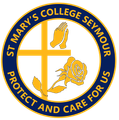Heath Centre

🟩 Head lice
These little critters are currently doing the rounds again. Please check your children’s hair and scalp and treat accordingly. Once the treatment has been applied, your child can return to school.
The treatment doesn’t kill the eggs (Nits) and therefore treatment needs to be repeated at 7 days to kill those that have emerged from unhatched eggs. You may need to repeat in a further 7 days, especially if you haven’t been able to comb all the eggs out of the hair.
There are a number of products available at the pharmacy and supermarket. Please be mindful that whatever the product directions state, a full treatment is always 2 applications, 7 days apart, at a minimum.
Myth busters
- Only 50% of children will itch.
- Lice cannot live and lay eggs away from a warm, human scalp.
- There is no proven preventative treatment available.
I have attached a current document link for your information. Give me a call or drop into the Health Centre if you have any questions.
https://www.health.vic.gov.au/infectious-diseases/head-lice
🟩 For Year 10 families:
The Mitchell Shire Immunisers will visit the College next week on Wednesday, June 4th @ 9am to provide your child with the Meningococcal vaccine.
Please provide them with your digital consent via this link ASAP:
https://portal.cirv.vic.gov.au/PrivacyCollection/?id=2d74afbf-e294-ef11-8a69-000d3a79bab1&Year10
OR
Complete the attached hard copy consent and return to me via nurse@smseymour.catholic.edu.au
Please NB: The Shire will not take verbal phone consents on the day, as they did last year. If the consent has not been completed by Wednesday morning (7am), they cannot provide your child with the vaccination.
If your child misses the vaccination at the College or would prefer having it privately, I have attached the Shire’s Community sessions calendar where you can attend at your convenience. You can also book in with a Nurse at your local GP clinic.
The vaccine is free at all sites.
For those Year 10 students who are off site next Wednesday, we will organise a catch up day at the College in August: date to be confirmed.
🟩 Common Cold
Tis the season for snotty noses, coughs, sore throats and colds. Rhinovirus is the cause of most of these. Viruses are not killed by antibiotics and mostly cause mild symptoms that require rest, fluids and good nutrition to recover. Paracetamol can help with fever, aches and pains and decongestants can help limit the amount of nasal congestion and secretions. Rhinoviruses multiply in cooler temperatures so keeping warm and promoting warm humidity in a room is beneficial.
Children and adults are often only unwell for a few days, however illness can last up to 14 days. Young children can get a cold up to 12 times a year. Most adults will get a cold up to 4 times a year.
If rest and symptomatic management are not provided, then our bodies cannot kill the virus and the infection will persist. Even though symptoms are often mild, Rhinovirus can also cause more severe symptoms, like ear infections, croup, pneumonia and for asthmatics they can trigger exacerbation. For our students and teaching staff who are immunocompromised the simple rhinovirus can cause severe illness.
Rhinoviruses are highly contagious. The virus spreads from an infected person’s coughs, sneezes and secretions from their nose and mouth. They can also be spread by touching your face after touching contaminated objects.
Therefore, it is very important to keep your child at home if they have a cold to rest and recover. It is also very important to teach your child good handwashing practices, cough etiquette and how to blow their nose and bin contaminated tissues. Not having these habits at school makes it very difficult for staff to manage and peers to stay well. Please help keep our students and staff healthy through the winter months.
Cheers,
Lisa Glover RN
College Nurse



